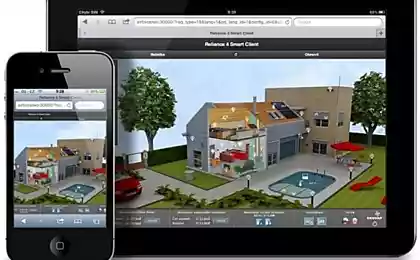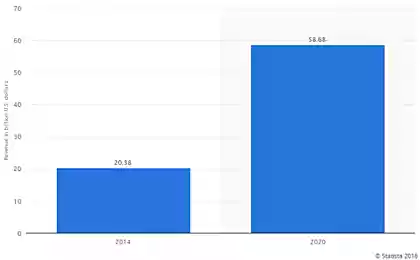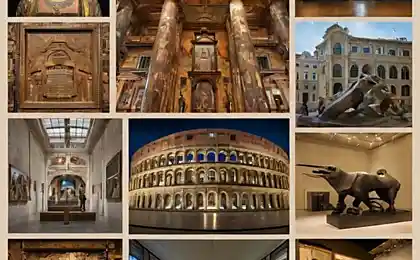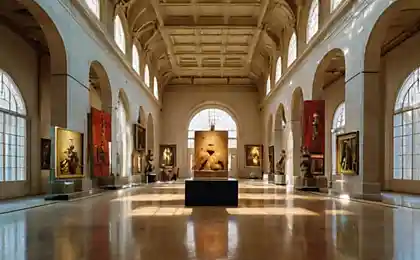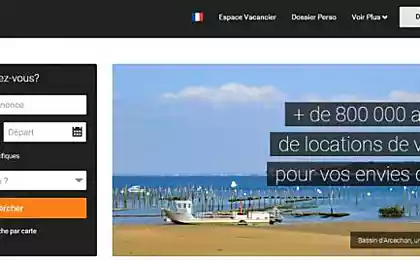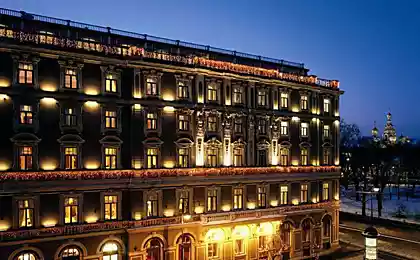610
Smart Museum and intelligent hotel as part of a smart city
The main purpose of the Internet of Things is to create a better world for humanity, in which the objects around us know that we love, what we want, what we need, and the desire to respond to these accordingly.
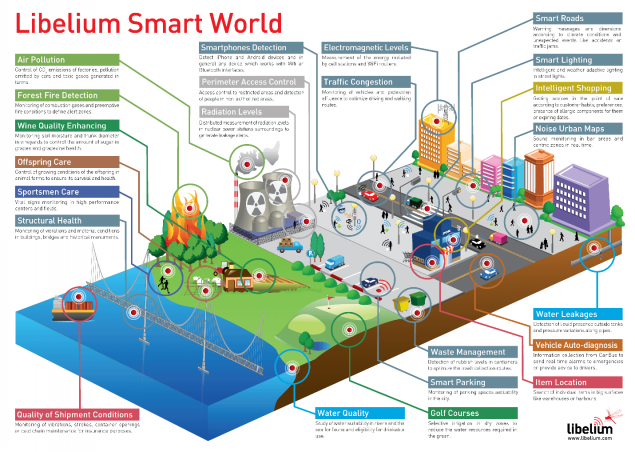
In 2016, the projects will increase in popularity of the concept of an intelligent city, as the number of open data is growing exponentially - thanks to this, developers will be able to provide a new API to create software applications
. According to Gartner, in 2016 all over the world will be used 6, 4 billion connected devices, which is 30% more than in 2015.
The idea of a smart city is discussed and developed for a long time. The ability to provide users with new services using smart objects attractive to many spheres of activity. Smart City will be able to control the consumption of water and electricity, to monitor the health of the population, to manage infrastructure.
With the growing number of integration possibilities, a key role in implementing smart city begin to play smart phones and tablet computers as they are devices capable of controlling other devices and transfer information between users.
An important aspect of life in the city is a cultural center and tourist activities. With this in mind, it makes sense to implement an intelligent system that can improve the user experience when visiting the museum. For example, tracking the movement of visitors, the museum will be able to transmit smart on their smartphones information about queues and the situation in the exhibition halls, modifying its status depending on various factors (such as the number of people in the room).
It is possible to realize, for example, via beacons iBeacon, which allow to accurately recognize the location of the person with respect to the object. With such devices, smart museum will inform visitors about special offers, as well as share information about the exhibition halls.
Another interesting idea for improving the cultural experience of the visitors could be the creation of portable devices capable of recognizing the art work, which looks human. Integration with social networks will give the user the opportunity to share their impressions about the painting or sculpture and to draw useful information.
This can help generate a so-called "social Internet of things» (SIoT), where you can read and listen to the different opinions about the exhibition or event and leave relevant comments in social media.
Moreover, thanks to the beacon the younger generation will be able to share their experiences with the world. With the help of smart technologies can be put huskies and comments directly "under certain paintings or sculptures." You can be in a couple of clicks to get to the route of exposure, which is so like your friends.
All this will play into the hands of owners and exhibitions, such as the huge amount of digital information will allow for high-quality analytics - track, where visitors spend more time, what routes they prefer, how much they are interested in a particular exhibit
.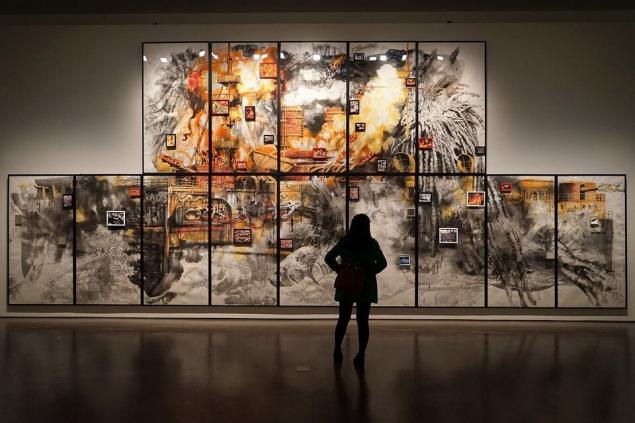
The potential of intelligent museum simply enormous. It may eliminate the need for guides, as all the necessary information about the exhibits will be delivered directly to your mobile phone. The app on the smartphone itself to build a route on a map and guide you through the museum of the work of Leonardo da Vinci's "Mona Lisa", and even tell some interesting facts.
Moreover, visitors will be able to customize the tour for yourself by studying the multimedia content while walking down the hall, and applying techniques of gamification (which can be fun, especially for children), it is possible to involve the people in an interesting historical story, inviting them to follow at certain check-points. Gamification could have a serious impact on the user experience, and it's one of the reasons why museums master mobile technology.
It was previously unattainable. The museum had the opportunity to follow in the footsteps of retail industry and to make specific proposals, based on the customer's preferences - special themed drinks at the café or souvenir shops. This will attract additional customers.
The Russian Museum intelligent technology is gradually turning into reality. Already there was a Smart Museum Platform, which should help visitors to the exhibitions to receive timely and full information on the exposure. The project is an electronic guide and gives you the opportunity to find out details about the exhibits without a guide and spending of Internet traffic. The project was founded in 2012 and has actively implemented in some museums, among which the number of the State Literary Museum, Museum of Furniture in Moscow and the State Tretyakov Gallery.
To use the services of the project, the user must download the app to your smartphone or tablet and read the QR-code, which are attached to the plate each exhibit.
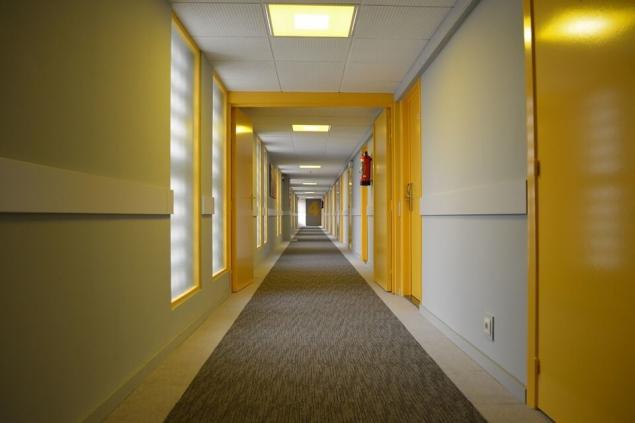
Of course, when tourists come to a city, then after they have visited the exhibition, they need somewhere to relax. Hotels - this is another place where you can use smart technology and beacons. Imagine a hotel that automatically keeps track of your location and opens up all the doors - you do not need a key longer
. If set at a plurality of beacons building, they will be able to automatically mark the time of arrival and departure, to help you find the way to their apartments or other premises. Smart technology, located in the apartment, also allow to select music and adjust the lighting design.
Think about this beginning Airbnb company whose leaders believe that, when a customer rents a place to live, it gets no room and luggage impressions . Fast Company reports that Brian Chesky (Brian Chesky), CEO of Airbnb, wants the company to not only act as a mediator between landlords and tenants.
Cesky decided that Airbnb make emphasis on hospitality and the convenience of customers. "If you ask Brian what Airbnb growth secret, he replied that it has nothing to do with the desire of people to buy housing is cheaper, - says Paul Graham, founder of Y Combinator. - Airbnb could start to rent cars or something like that, but there is no ... The project team decided to gain a foothold in the hospitality industry »
. iBeacon may well be part of this vision. Beacons placed filmed in the apartment, may alert you about interesting events happening nearby, or interesting places, such as souvenir shops. From the standpoint of a homeowner too has its advantages.
iBeacon will notify landlords when a guest left the house, or vice versa, when he came. Smartphones customers will be able to receive updates from Airbnb, depending on the time of day or the weather outside - so to speak, traveling tips. This will only have a positive impact on the user experience.
Because of the trip the impression not only of the experience of the place of spending the night, you can imagine that they can offer beacons at each stage of the journey. Special wearable beacon located on the wrist, can alert you to the border crossing of the new city and report the location of good bars, restaurants and other centers.
As we move beyond the old paradigms? We need to stop thinking of hotels just a room, and to consider their media platforms, whole communities. We need to stop thinking about the Internet of things, but think about the Internet experience and expertise.
Source: geektimes.ru/company/gsgroup/blog/276924/

In 2016, the projects will increase in popularity of the concept of an intelligent city, as the number of open data is growing exponentially - thanks to this, developers will be able to provide a new API to create software applications
. According to Gartner, in 2016 all over the world will be used 6, 4 billion connected devices, which is 30% more than in 2015.
The idea of a smart city is discussed and developed for a long time. The ability to provide users with new services using smart objects attractive to many spheres of activity. Smart City will be able to control the consumption of water and electricity, to monitor the health of the population, to manage infrastructure.
With the growing number of integration possibilities, a key role in implementing smart city begin to play smart phones and tablet computers as they are devices capable of controlling other devices and transfer information between users.
An important aspect of life in the city is a cultural center and tourist activities. With this in mind, it makes sense to implement an intelligent system that can improve the user experience when visiting the museum. For example, tracking the movement of visitors, the museum will be able to transmit smart on their smartphones information about queues and the situation in the exhibition halls, modifying its status depending on various factors (such as the number of people in the room).
It is possible to realize, for example, via beacons iBeacon, which allow to accurately recognize the location of the person with respect to the object. With such devices, smart museum will inform visitors about special offers, as well as share information about the exhibition halls.
Another interesting idea for improving the cultural experience of the visitors could be the creation of portable devices capable of recognizing the art work, which looks human. Integration with social networks will give the user the opportunity to share their impressions about the painting or sculpture and to draw useful information.
This can help generate a so-called "social Internet of things» (SIoT), where you can read and listen to the different opinions about the exhibition or event and leave relevant comments in social media.
Moreover, thanks to the beacon the younger generation will be able to share their experiences with the world. With the help of smart technologies can be put huskies and comments directly "under certain paintings or sculptures." You can be in a couple of clicks to get to the route of exposure, which is so like your friends.
All this will play into the hands of owners and exhibitions, such as the huge amount of digital information will allow for high-quality analytics - track, where visitors spend more time, what routes they prefer, how much they are interested in a particular exhibit
.

The potential of intelligent museum simply enormous. It may eliminate the need for guides, as all the necessary information about the exhibits will be delivered directly to your mobile phone. The app on the smartphone itself to build a route on a map and guide you through the museum of the work of Leonardo da Vinci's "Mona Lisa", and even tell some interesting facts.
Moreover, visitors will be able to customize the tour for yourself by studying the multimedia content while walking down the hall, and applying techniques of gamification (which can be fun, especially for children), it is possible to involve the people in an interesting historical story, inviting them to follow at certain check-points. Gamification could have a serious impact on the user experience, and it's one of the reasons why museums master mobile technology.
It was previously unattainable. The museum had the opportunity to follow in the footsteps of retail industry and to make specific proposals, based on the customer's preferences - special themed drinks at the café or souvenir shops. This will attract additional customers.
The Russian Museum intelligent technology is gradually turning into reality. Already there was a Smart Museum Platform, which should help visitors to the exhibitions to receive timely and full information on the exposure. The project is an electronic guide and gives you the opportunity to find out details about the exhibits without a guide and spending of Internet traffic. The project was founded in 2012 and has actively implemented in some museums, among which the number of the State Literary Museum, Museum of Furniture in Moscow and the State Tretyakov Gallery.
To use the services of the project, the user must download the app to your smartphone or tablet and read the QR-code, which are attached to the plate each exhibit.

Of course, when tourists come to a city, then after they have visited the exhibition, they need somewhere to relax. Hotels - this is another place where you can use smart technology and beacons. Imagine a hotel that automatically keeps track of your location and opens up all the doors - you do not need a key longer
. If set at a plurality of beacons building, they will be able to automatically mark the time of arrival and departure, to help you find the way to their apartments or other premises. Smart technology, located in the apartment, also allow to select music and adjust the lighting design.
Think about this beginning Airbnb company whose leaders believe that, when a customer rents a place to live, it gets no room and luggage impressions . Fast Company reports that Brian Chesky (Brian Chesky), CEO of Airbnb, wants the company to not only act as a mediator between landlords and tenants.
Cesky decided that Airbnb make emphasis on hospitality and the convenience of customers. "If you ask Brian what Airbnb growth secret, he replied that it has nothing to do with the desire of people to buy housing is cheaper, - says Paul Graham, founder of Y Combinator. - Airbnb could start to rent cars or something like that, but there is no ... The project team decided to gain a foothold in the hospitality industry »
. iBeacon may well be part of this vision. Beacons placed filmed in the apartment, may alert you about interesting events happening nearby, or interesting places, such as souvenir shops. From the standpoint of a homeowner too has its advantages.
iBeacon will notify landlords when a guest left the house, or vice versa, when he came. Smartphones customers will be able to receive updates from Airbnb, depending on the time of day or the weather outside - so to speak, traveling tips. This will only have a positive impact on the user experience.
Because of the trip the impression not only of the experience of the place of spending the night, you can imagine that they can offer beacons at each stage of the journey. Special wearable beacon located on the wrist, can alert you to the border crossing of the new city and report the location of good bars, restaurants and other centers.
As we move beyond the old paradigms? We need to stop thinking of hotels just a room, and to consider their media platforms, whole communities. We need to stop thinking about the Internet of things, but think about the Internet experience and expertise.
Source: geektimes.ru/company/gsgroup/blog/276924/
Where to go to sea without a visa? 7 wonderful countries that have been waiting for!
What myslevirusy and how to recognize them




